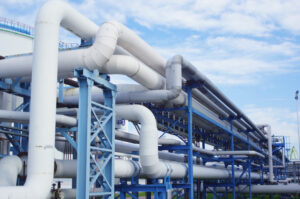-
0 Comments
The Future of Smart Water Metering: How It’s Changing Water Management
Water is one of the most critical resources for municipalities, yet aging infrastructure and inefficiencies result in significant losses. Cities must balance the demands of residential, commercial, and industrial users while ensuring sustainable water distribution and long-term service reliability.
Traditional water management systems rely on outdated meters and manual readings, leading to undetected leaks, inaccurate billing, and inefficient resource allocation. This not only increases operational costs but also jeopardizes water security for entire communities.

By adopting smart water infrastructure, municipalities can leverage real-time data and automated systems to reduce water waste, enhance service reliability, and optimize resource allocation across all customer types. This article explores how intelligent metering solutions help cities achieve sustainable water management, ensuring equitable and efficient distribution for homes, businesses, and industries alike.
Challenges in Municipal Water Management
Municipalities face three major obstacles when managing water resources:
Non-Revenue Water (NRW) Losses – An estimated 20–30% of municipal water is lost due to leaks, theft, and inaccurate metering. This impacts revenue, increases costs, and strains infrastructure.
Limited Real-Time Monitoring – Without continuous data collection, cities rely on manual meter readings, delaying leak detection and making proactive maintenance nearly impossible.
Aging Infrastructure & Service Reliability – Many cities operate with decades-old pipes and metering systems, leading to inefficiencies, water loss, and higher maintenance costs.
Why Traditional Methods Are No Longer Enough
Manual metering delays problem detection – Utilities only detect leaks once they become major issues, leading to expensive repairs
Billing inaccuracies affect customers and revenue – Unreliable consumption data results in incorrect billing for all user types.
Limited conservation efforts – Cities struggle to implement water-saving initiatives without real-time insights into consumption patterns.
How Smart Water Meters Work
Smart water meters use IoT technology and real-time data analytics to transform municipal water management. These meters:
Detect leaks instantly
Alerts enable cities to fix issues before they cause significant water loss.
Enable remote monitoring
Utilities can track usage without relying on manual readings.
Ensure accurate billing
Eliminates disputes and improves revenue collection.
Optimize pressure and distribution
Helps municipalities balance supply across residential, commercial, and industrial users.
Why It’s a Game-Changer for Cities
Reduces operational costs – Automated tracking and predictive maintenance lower repair expenses.
Improves response times – Real-time data allows for immediate problem-solving.
Supports sustainability – Optimized water use benefits the entire municipality, from homes to businesses.
How Smart Infrastructure Supports All Municipal Customers
Smart water management benefits all user types under the city’s broader conservation strategy:
Residents
Receive accurate bills, fewer service disruptions, and improved pressure management.
Businesses
Experience more predictable water service and avoid unexpected shortages or surcharges.
Industrial Facilities
Benefit from optimized water distribution, ensuring compliance with municipal sustainability goals.
Real-World Examples Within a Smart City Initiative
A residential district saw a 10% reduction in household water waste after leak alerts were introduced.
A commercial hub improved efficiency when smart meters flagged excess water use in high-traffic buildings.
An industrial zone adjusted operations after smart data helped balance municipal water pressure, preventing overuse.
Key Advantages for Cities
Lower NRW Losses – Smart meters help recover lost water, improving financial stability.
Efficient Resource Allocation – Data-driven insights allow cities to distribute water fairly and sustainably.
Sustainable Growth – Supports long-term urban planning while preserving resources.
Steps for Municipalities to Upgrade Their Water Infrastructure

Why Smart Water Infrastructure is the Future of Municipal Water Management
Cities that embrace intelligent water systems are better equipped to manage resources efficiently, ensuring fair distribution, lower costs, and sustainable growth. With real-time monitoring, automated leak detection, and improved billing accuracy, municipalities can deliver better services to residents, businesses, and industries alike.
Smart water solutions are no longer optional—they’re essential for the future of urban sustainability. Investing in data-driven infrastructure ensures a resilient, cost-effective, and resource-efficient water system for all municipal users.
